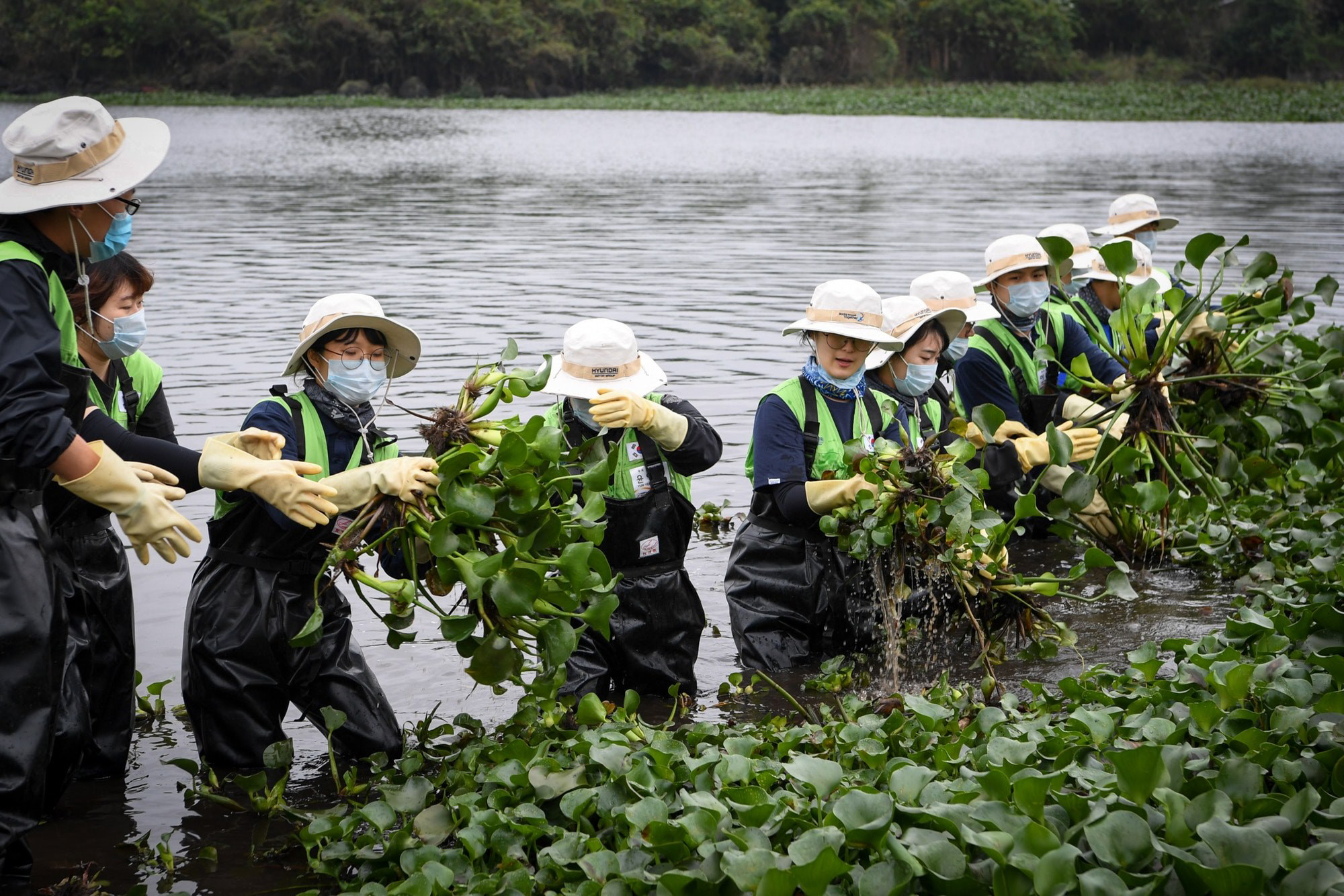The fine line between growth and staying green
As China promotes development to pull people out of poverty, it needs to tread carefully, a UN official says


Editor's note: As China aims to eliminate extreme poverty and be a "moderately prosperous society" (xiaokang shehui) in time for the 100th anniversary of the founding of the Communist Party of China next year, we talk to experts for their take on the country's commitment.
When Beate Trankmann worked in Beijing as a program officer in 1999, cars on the road were sparse, and there were so few modern buildings on the skyline that it was easy enough to count them one by one. In those days, commuters in the capital mostly relied on bicycles and buses, the latter pumping copious amounts of diesel exhaust into the air.
"Beijing, or most cities in northern China, relied mainly on coal heating," Trankmann said. "I still remember that smell in winter. The whole city smelt like a coal mine.
"You didn't have to travel too far from Beijing to see abject poverty. Just 40, 50 or 60 kilometers outside the city, people could not make ends meet."
Trankmann, now the United Nations Development Programme resident representative in China, said Beijing, as well as the whole country, has changed dramatically since those days.
"It's all changed. Nowadays Beijing has a very sophisticated subway system. All the buses run on hydrogen and green energy. You also see that same development in other places."
Trankmann took up her current post in October last year after a career with the UNDP since the late 1990s, particularly in the Asia-Pacific region, including postings in Mongolia, Indonesia, Sri Lanka and Cambodia, as well as China from 1999 to 2002.
Although working and living in modern China for a short time, Trankmann has experienced its rapid development close up, and said the country is playing a leading role in many spheres, such as green energy, an area in which the UNDP is heavily involved.
It is vital to get the balance right between development and environment, she said.
"Last year I visited Foshan in Guangdong province, one of the centers of China's hydrogen economy. And Nanhai district, the demonstration pilot zone, is looking at transforming its 12,000 buses and delivery vehicles into fuel cell technologies, or hydrogen powered vehicles."
Preserving a place's natural environment can give a fillip to certain industries, such as tourism, which can help give the people of local communities better lives, she said. This applies particularly to poor people in rural areas who are more dependent than others on a cleaner environment and intact ecosystems.
"Environmental degradation also runs the risk of pushing people back into poverty, and producing enormous costs for development," Trankmann said.
Conversely, it is clear that cleaner environments can create business opportunities, which is why the UNDP has been promoting environmentally friendly tourism in China.
In Hunan Nanshan National Park, the UNDP is working with local organic honey producers, helping improve their livelihoods while protecting biodiversity and local ecosystems, and promoting ecotourism that can boost local commerce.
"Now it's really a quite different time," Trankmann said.























